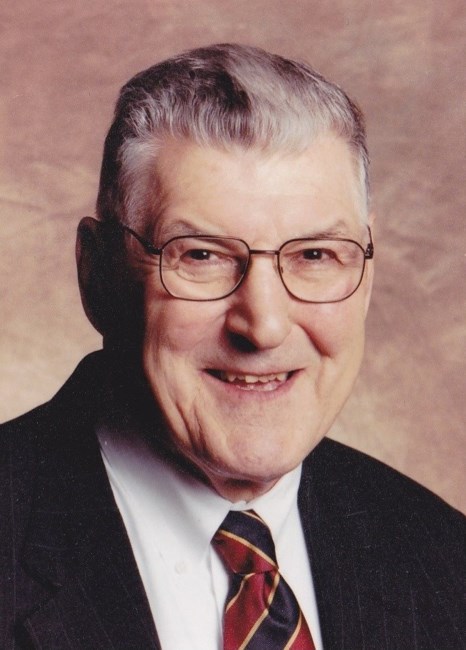
OBITUARY
John Swift Anderegg Jr.
February 1, 1924 – August 5, 2015

John Swift Anderegg, Jr., whose intellect impressed all who knew him yet who never put on airs, maintained his boundless enthusiasm for discovering his world and solving its problems from the moment he was first introduced into it in Philadelphia, PA on February 1, 1924 to the moment he took his leave of it in Buzzards Bay, MA on August 5, 2015. He passed quietly at his home surrounded by family. He was 91.
At the age of 14, “Jack,” as Mr. Anderegg was known, read A. Russell Bond’s The Scientific American Boy and took to heart its tales of boys depending on their own ingenuity and available resources to build projects as diverse as skate sails, underground clubhouses, and cantilevered bridges. The book’s lessons on self-reliance, creative thinking, and honest effort resonated with Jack and he exemplified those virtues for the rest of his life. Some suspect his enlistment in the U.S. Army’s Signal Corps during World War II and his work in its “Ghost Army” in the Italian Campaign (1944-1945) could be credited to Bond’s chapter on “Wigwagging and Heliographing.”
In addition to being a gentleman and an ardent patriot, Jack was an intuitive mechanic, often able to diagnose what ailed an internal combustion engine just by listening to it. He could rest the handle of a screwdriver against his cheekbone, press the screwdriver’s head against the block while an engine was running, and identify which cylinder was misbehaving and why. He could even resolve such problems by long-distance telephone after hearing a description of symptoms from a stranded motorist.
Born to John Swift Anderegg and Etheldreda Philips Anderegg, Jack grew up in Colonia, NJ. In his adolescence, he had a fascination with pyrotechnics but managed to come through without any serious brushes with the law, all ten fingers and toes intact, and a mother who never discovered the scorch marks blackening the back sides of her living room drapes. After attending Pingry with his younger brother, James Murray Anderegg, Jack enrolled in MIT, interrupting his education to volunteer for military service in early 1942.
After the war, Jack used the so-called “52-20 bill” to continue his education but not at MIT, at least not at first. He used the stipend of $20 per week for 52 weeks to attend classes in secretarial school to learn shorthand, after which he re-enrolled in MIT with a much improved capacity to take fast, accurate notes. He graduated in the class of 1949.
Jack’s first forays into business included stints as a traveling salesman for American Wire and as an engineer for Boston’s Draper Labs where he mingled with veteran pilots who raced cars in their leisure time. His engineering colleagues at Draper encouraged him to start a business of his own. In the years that followed he delighted in open-wheel car racing and, in 1955, was one of the founders of Dynamics Research Corporation (DRC), the company that would be his passion for the remainder of his working life and for which he would serve as both President and Chairman of the Board.
When he was 34, Jack went on a blind date and met Hope “Skip” Ingersoll from Buzzards Bay, MA. They fell in love and were married in 1959, raising three children—Gretchen, Murray, and Susan—before Hope died suddenly in 1989.
Then a widower, Jack continued working at DRC and continued tinkering with internal combustion engines, most notably a 1953 Jaguar XK120m which was purchased while he was still a bachelor and had become a perpetual project in the barn behind his Carlisle home. With time on his hands, he also attended the Campbell Folk School in North Carolina to study blacksmithing, an interest he had long held, inspired in part by his mother’s father, a farrier who had owned a large shop in Philadelphia.
In 1994, with encouragement from family and friends, Jack and Frances Garland were married. They had known each other for years as their respective spouses, both deceased, had been cousins. Jack and Frances remained happily together ever since.
Jack was a pragmatic optimist. He held an unwavering faith that the future was open to anyone with initiative and a willingness to work hard but understood that not everyone was blessed by fortune. He encouraged others to improve themselves through their own industry, mentoring them, offering to support their educations, and sometimes opening his home to provide a safe haven.
Jack leaves behind his beloved wife Frances; his children Gretchen, Murray, and Susan; his grandchildren Nathan and Jeremy Anderegg; Raef, Fiona, and Finnegan Gormley; Rebecca, Jack, and William Butler; and his stepchildren Jill and Charles Garland. He was predeceased by his stepdaughter Jennifer Garland Weiner.
The funeral will be at 11:00 a.m. Monday, August 10, 2015 at St. Peter’s Church, 165 Main Street, Buzzards Bay, MA. A memorial service will be held at 12:00 p.m. Saturday, August 15, 2015 at the First Religious Society, 27 School Street, Carlisle, MA. In lieu of gifts or flowers, donations should be made anonymously to a favorite scholarship fund.
Show your support
Add a Memory
Share Obituary
Get Reminders
Services
SHARE OBITUARYSHARE
- GET REMINDERS
v.1.18.0